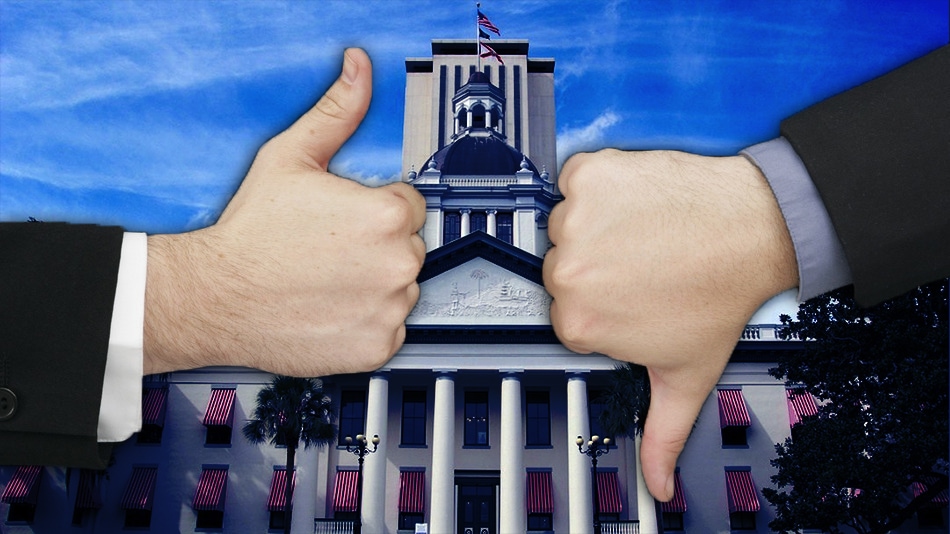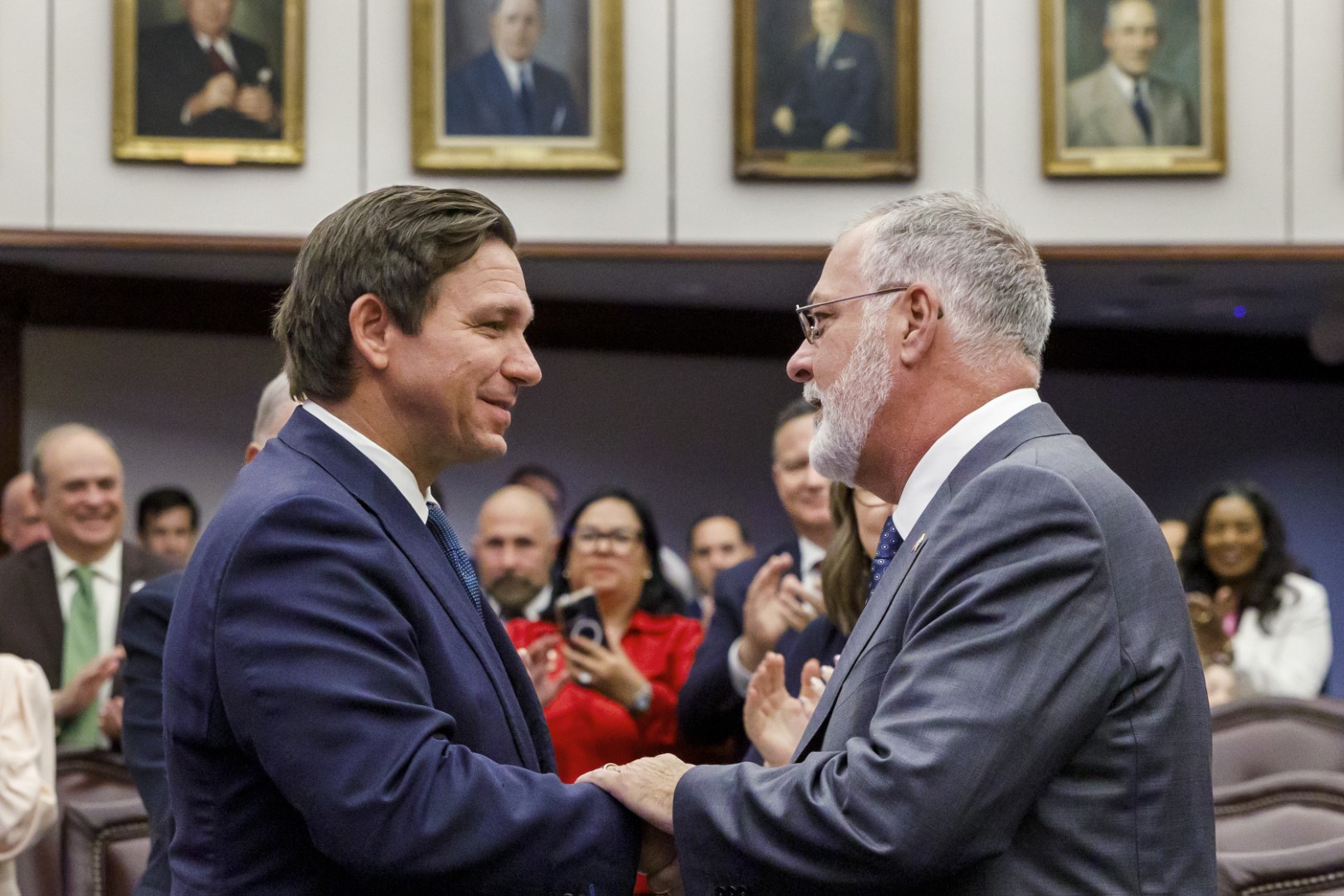It’s hard to top the anticipation of Super Bowl Sunday, but the NBA managed to pull it off for most of this week, thanks in part to action by the Miami Heat.
Starting with the absolutely shocking trade of Luka Dončić for Anthony Davis last weekend, the NBA kept churning out one banger trade after another. Other former All Stars traded leading up to Thursday’s trade deadline were De’Aaron Fox, Brandon Ingram, Zach Lavine and Khris Middleton.
Also on that list were Jimmy Butler and Andrew Wiggins, the centerpieces of a deal that allowed Miami to move on from its troubled superstar.
Butler brought years of exceeded expectations for the Heat, and over time his tenure will likely be looked upon fondly. But his petulance during this season — where he was being paid more than $50 million — left a sour taste in the mouths of many fans and the front office, who finally shipped him off to Golden State in a deal that netted the Heat Wiggins, a solid draft pick and multiple rotation players.
Are the Heat title contenders all of a sudden? No, but they earned a solid package for a guy who was a cancer for the team this year and who could have walked for free this offseason, and Miami has a frisky team that could give the East’s top contenders headaches in the playoffs.
Much has been made this year about the NBA’s on-court product and its health going forward as the NFL continues to be the dominant top dog among America’s major sports. And that will of course remain true this evening and in the ensuing days, with a stellar Super Bowl matchup on hand and plenty of fallout fans will be wading through regardless of the results of Sunday’s game.
But for most of this week, the NBA was stealing the spotlight, and the league set itself up in a good position to fill the void left by football after the final game of the year this evening.
Now, it’s onto our weekly game of winners and losers.
Winners
Honorable mention: Hillsborough County Commission. The county this week bucked the trend in recent weeks of municipalities moving to remove fluoride from local drinking water supplies.
The anti-fluoride crusade started after Florida Surgeon General Joseph Ladapo, who has a history of promoting junk science, recommended localities nix fluoride from drinking water, a position years ago mostly confined to fringe characters like Alex Jones.
But with the COVID pandemic fueling a rebellion against the scientific establishment, COVID crusaders are looking for a new target and seem to have honed in on fluoride. Robert F. Kennedy Jr. has also floated issuing federal recommendations to remove fluoride.
On Wednesday, Hillsborough County declined to pass a motion which would have removed fluoride, with a proposed motion to do so failing on a 3-3 vote, with one Commissioner absent.
Could there be merit to claims that fluoride does more harm than good? Sure. Ladapo is a crackpot, but the National Institutes of Health toxicology program recently found, with “with moderate confidence,” a potential connection between fluoride exposure and lower IQ levels in children. A U.S. District Court recently cited that study in an order requiring additional regulation of the drinking water supply.
A major caveat: That study looked at fluoride levels higher than those present in water. And fluoride has clearly demonstrated its effectiveness in increasing the health of teeth. So we’d essentially be passing up on a known health benefit for an as-yet-unproven risk.
Officials should definitely look more closely at this issue in light of that recent study. But what’s happened in Florida in recent weeks is a rush to just yank fluoride out of the water supply, reversing a decadeslong practice. And we can’t help but think it’s driven mostly by a vibe shift due to Trump winning, rather than by a clear scientific basis.
Good on Hillsborough for resisting the urge to go along with this trend until the picture is clearer here.
Almost (but not quite) the biggest winner: Jason Weida. Weida fills in a gap created by the musical chairs of last month, as he will take over as Gov. Ron DeSantis’ next Chief of Staff.
Weida will replace longtime DeSantis ally James Uthmeier, who is set to become Florida’s Attorney General.
Weida moves over after serving as Secretary of the Agency for Health Care Administration. He’ll get even cozier with DeSantis World during the final two years of DeSantis’ term as Governor as he weighs his next move.
And it’s likely going to be a high-stakes period, with the Special Session drama of last month foreshadowing a far more combative relationship between DeSantis and the Legislature than existed for the entirety of DeSantis’ tenure as Governor.
That’s a double-edged sword for Weida. It presents a lot of difficulty in navigating the next two years, meaning Weida very well may trip up. But should he help guide DeSantis to a path of political success, Weida will prove his worth as DeSantis no doubt eyes another run at the White House at some point in the future.
The biggest winner: Jeanette Nuñez. Congratulations to the next Interim President of Florida International University (FIU). Nuñez was confirmed in the role Friday after news broke earlier this week that she would make the move.
We see this as a significant win for Nuñez on two fronts. First is simply the attractiveness of the job. FIU is no doubt on its way up as an institution. The past few years, FIU has surged in U.S. News & World Report’s rankings and earned major plaudits from The Wall Street Journal as well. Nuñez, a two-time FIU alumna, now has an opportunity to grow on that already evident success.
And, let’s be frank here, this position gives Nuñez an off ramp for a political future that was murky given the current climate in Florida.
Despite serving as DeSantis’ Lieutenant Governor since they won in 2018, Nuñez was far from the favorite in a GOP Primary in 2026 once DeSantis hits term limits. She was picked as a more moderate choice for the right-leaning DeSantis in 2018, and that past wasn’t likely to do her any favors in a Republican Primary likely to be dominated by the conservative flank in an era of Trump.
Take her decision just over two weeks ago to back new legislation repealing in-state tuition levels for undocumented students. Why is that notable? Because it was Nuñez herself who pushed the legislation granting in-state tuition to those migrants during her time in the Legislature.
Now of course, she knows which way the winds are blowing. And as DeSantis’ No. 2, she felt forced to publicly rebuke her old bill. But make no mistake: that would have been a liability in a GOP Primary, as would her past criticism of Trump.
So rather than being left in limbo, Nuñez earned a sweet gig leading one of Florida’s top universities. It’s a move plenty of Florida officials have made in recent years. And while Nuñez only has the “interim” title for now, she certainly has a chance to change that going forward.
Harsh political climate of not, Nuñez clearly has strong leadership skills that shouldn’t be downplayed just because she’s not in lockstep with the right flank of the current Florida Republican Party. She is more than capable of succeeding in this new role and continuing to shape her legacy of public service.
Losers
Dishonorable mention: Spring Break. It’s curtains again for Spring Break in Miami Beach, at least that’s what local officials hope given their new ad campaign.
The mecca of sun and sand released a parody ad for a fake new reality show picturing young partygoers heading to South Beach to party, only to run into various hurdles such as $100 parking, DUI crackdowns and curfews. The city has instituted those policies, and more, to dissuade wild 20-somethings from descending upon the city and causing chaos, as they have in recent years.
Miami Beach did something similar last year with backup from the Governor, who promised a heavy police presence to keep things under control. Previous to that, the city had taken a more reactionary approach, only instituting curfews and other measures after violence and other mayhem broke out.
The newest ad ends with one of the fake reality show stars saying, “I’d come back to Miami Beach, just not for Spring Break.” That’s clearly meant to be a message making sure tourism isn’t tanked in South Beach the rest of the year.
And it also emphasizes the struggles the city has dealt with in years past. Leaders would rather pass up significant tourism revenue from Spring Break travelers than deal with the costs associated with keeping the peace.
So those looking to get wild will need to do it elsewhere.
Almost (but not quite) the biggest loser: Ben Sasse. The Sasse saga continues, with a state audit digging into the details of his excessive spending with helming the University of Florida (UF).
News of Sasse’s spending spree broke last year shortly after he left abruptly as UF President. A recent Florida Auditor General report is now shedding more light on just how much he abused UF’s budget.
As reported by the Independent Florida Alligator, which did the hard work originally uncovering Sasse’s questionable expenditures, the audit revealed hundreds of thousands spent on questionable charter flights, perks for staff members loyal to Sasse and a lavish holiday party.
The report also took aim at Sasse continuing to take a $1 million salary at UF, which he was paid as President, for a smaller role at the university. And, like the Alligator’s original reporting, the audit spotlighted multiple Sasse staffers being paid well above market rates, along with several other suspect allocations.
UF will get a chance to respond to the preliminary report before a final report is released. But this already adds credence to the argument that Sasse was wildly reckless with the budget of Florida’s premier institution of higher education. Good riddance.
The biggest loser: Debbie Mayfield. Florida’s Department of State this week smacked down Mayfield’s effort to return to the Senate via a Special Election for her old Senate District 19 seat.
At issue is an interpretation of Florida’s term limits provisions. Members of the Legislature are barred from serving more than eight consecutive years in a particular office courtesy of a 1992 constitutional amendment.
Mayfield, a former Senator, hit those term limits as she wrapped her term ending last year. So in November, she stepped aside and ran for a House seat, winning the House District 32 race. Former Rep. Randy Fine replaced Mayfield in the Senate.
Within weeks, Fine announced his intention to run for Congress and resign his newly won Senate seat. So Mayfield, having some time — however little — away from the Senate while serving in the House, announced her intention to run for that Senate seat again.
Now, if Fine had served a few years before stepping away, very few people would say that Mayfield would have any trouble running again for the Seat. There have been plenty of examples of lawmakers running for one chamber or another after time away. Heck, Mayfield herself already served eight years in the House from 2008-2016, and she was allowed to run for the House again in November with no issues, as Florida’s Constitution only bars service for eight consecutive years.
But Secretary of State Cord Byrd is apparently interpreting that provision to bar what happened here: Mayfield seeking re-election just a few months since she served as a Senator after hitting term limits. Mayfield has given up her House seat, so this decision leaves her on the outside looking in.
Now, Mayfield is suing over this decision, which seems to fly in the face of how the constitution has been interpreted in the past. She may very well win in court, and in that case we’ll likely weigh in on this saga again.
But for now, Mayfield has hit a major roadblock courtesy of the DeSantis administration. Does that have anything to do with Mayfield being part of a group of state lawmakers who switched their presidential endorsements from DeSantis to Trump during last cycle’s Primary? Come on, is this Governor that petty?
Post Views: 0

 Entertainment8 years ago
Entertainment8 years ago
 Entertainment8 years ago
Entertainment8 years ago
 Politics8 years ago
Politics8 years ago
 Tech8 years ago
Tech8 years ago
 Tech8 years ago
Tech8 years ago
 Tech8 years ago
Tech8 years ago
 Politics8 years ago
Politics8 years ago
 Tech8 years ago
Tech8 years ago














